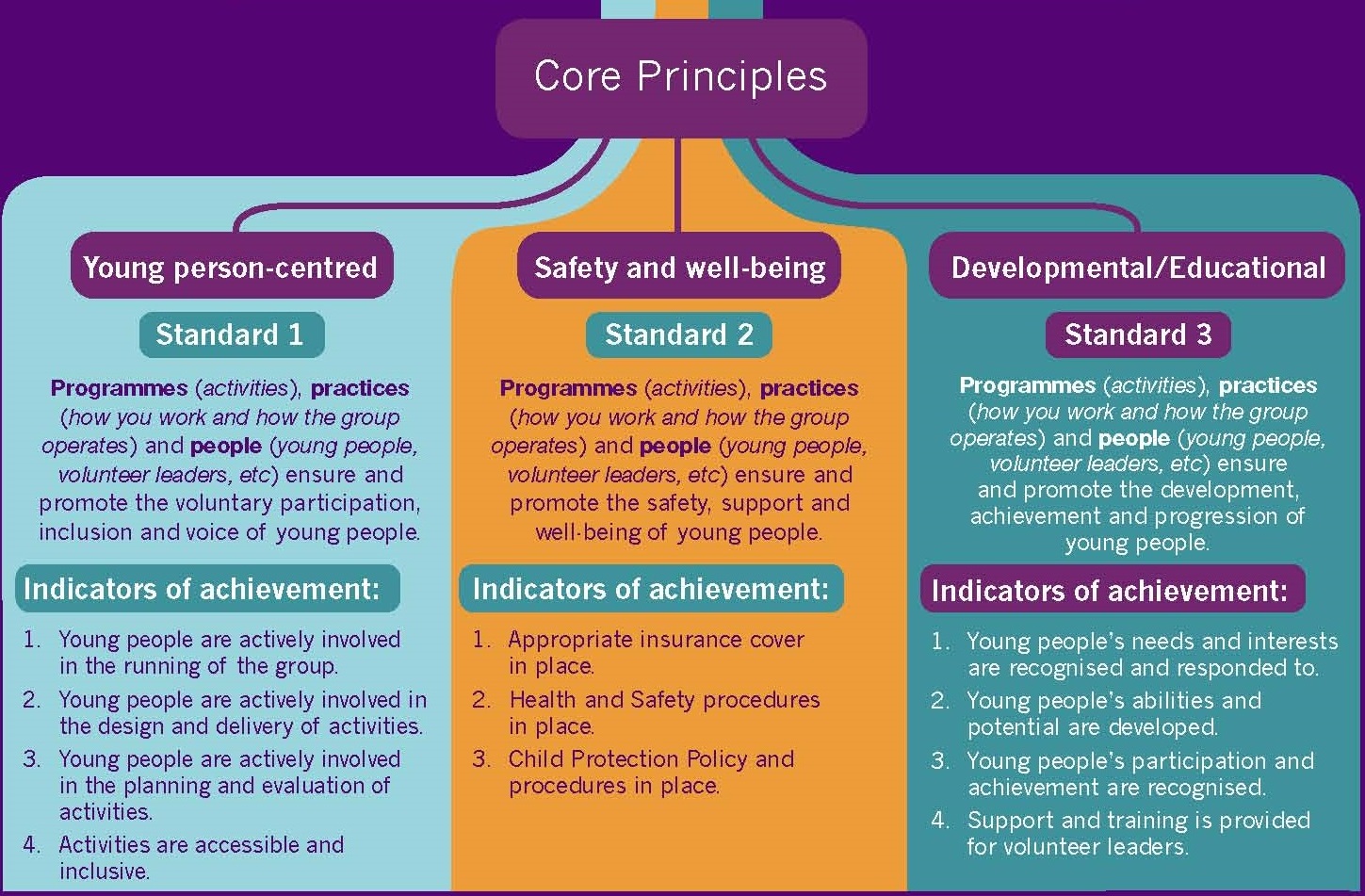Keane, Martin
(2014)
New standards to support the voluntary capacity of youth work provision in Ireland.
Drugnet Ireland,
Issue 48, Winter 2013,
pp. 15-16.
According to a recent report by Indecon1 which assessed the economic value of youth work in Ireland, there are over 40 national youth work organisations in the sector responsible for providing services through local community-based projects and groups. It is estimated that 40,145 individuals work in a voluntary capacity in the sector and 1,397 full-time equivalents are employed in management, service delivery and training and support for volunteers.
In a move designed to support the large voluntary capacity within the youth sector, the Department of Children and Youth Affairs (DCYA) recently published a new set of quality standards to support volunteer-led youth groups in creating and providing quality, developmental and educational programmes and activities for young people in safe and supportive environments.2 The standards are designed to:
- improve the quality of the programmes and activities provided;
- improve the way programmes and activities are planned and delivered; and
- provide young people with the opportunity to have a say in the development and review of the group and its activities.
The standards will be implemented with youth groups on a phased and incremental basis with a view to all youth groups in receipt of funding from the DCYA being engaged in the process from January 2014. It is expected that many of the groups funded by the DCYA will already be in a position to adhere to the standards and confirm that they have met each of the indicators of achievement. The standards are based on three core principles from which the indicators derive, as set out on p.1 of the guide:

One group of indicators in these standards calls for active involvement of young people in the planning, design, delivery and evaluation of volunteer-led youth services, and making services relevant to young people. This is an important dimension of these standards and echoes the wishes of young people when consulted on how to improve youth services. For example, the DCYA recently published a summary of the main issues to arise from a regional consultation with 239 young people in Sligo, Cork and Dublin.3 Over half (57%) the cohort were female and 73% were aged under 18 years. When asked for their views on how existing activities in the youth sector could be improved, and for new ideas for clubs and activities, the main responses centered on young people having a more active say in running clubs and activities, more interaction with similar groups outside the clubs and greater diversity of activities in clubs.
Summary
In times of austerity and in the context of a struggle for access to scarce resources, it is important that we learn from and use information from research to design and deliver services that are fit for purpose. One way this can be achieved is by combining information from related research to develop ‘logical linkages’ between what at first may appear to be unrelated accounts. By way of illustration, take the three reports cited in this article. The Indecon report estimated that 40,145 individuals work in a voluntary capacity in the youth work sector, this figure can be used to establish a case for a programme of support to maintain and enhance the contribution of this large group of volunteers in the sector. One means of providing such support is to issue clear guidelines on the standards required by volunteers in their work with young people; this has now been done via the DYCA and the publication of the national quality standards for volunteer-led youth work. This illustrates that policy is responding to an identified need that came about via research. In turn, adherence to the standards will be partially assessed by examining the role played by young people in the planning, design, delivery and evaluation of youth services. This group of indicators of achievement is consistent with the desire for active participation expressed by a sizeable cohort of young people who use youth services, as described in the
Young voices report; such linkage renders the indicators meaningful and relevant constructs. These three reports illustrate how ‘logical linkages’ can be gleaned from different research products and used to develop coherent policy and practice that link the need for services with provision and evaluation.
1. Indecon International Economic Consultants (2012)
Assessment of the economic value of youth work. Dublin: National Youth Council of Ireland.
www.drugsandalcohol.ie/19045
2. Department of Children and Youth Affairs (2013)
Volunteer group leaders’ guide to national quality standards for volunteer-led youth groups. Dublin: Department of Children and Youth Affairs.
www.drugsandalcohol.ie/20356
3. Department of Children and Youth Affairs (2013)
Young voices: have your say. Summary report. Dublin: Department of Children and Youth Affairs.
www.drugsandalcohol.ie/19479